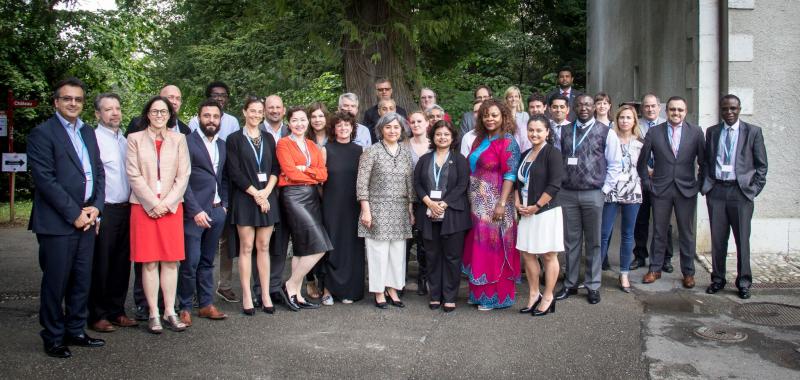
Global Workshop on Strategic Risk Analysis and Profiling for Health Emergencies,
May 9, 2018
|
The three-day (9-11 May 2018) “Global Training Workshop on “Strategic Risk Analysis and Profiling for Health Emergencies”, concluded in Geneva underscoring the need for a global working group to provide guidance on health emergency risk assessment, analysis and profiling. The training workshop was attended by the participants from five WHO Regions and country offices, WHO’s Health Emergencies Program (WHE) departments in Headquarters and partner organizations including UNISDR, OCHA, CDC Atlanta.
The participants discussed the different methodologies already being used by countries and WHO for assessing, prioritizing and analysing risks and vulnerabilities. It was acknowledged that different types of risk assessments are used by health and other sectors for different purposes. It is therefore important to ensure that everyone uses the same approach methodology for better planning, resources allocation and monitoring of the implementation of the priority actions. The participants highlighted the need for a comprehensive framework for all hazards health emergency risk assessment and also an inventory of all available tools/methodologies for easy reference. They agreed on the need for a global approach to harmonize the methodologies and recommended that a working group to be formed with participation from the regions, countries, other WHE departments and partners to provide guidance on harmonization of various risk assessment methodologies. The participants also agreed on the need for ‘quick’ strategic risk assessment to generate evidence for planning and implementation of emergency preparedness and response. It was agreed that the existing WHO Strategic Tool for Assessing Risk (STAR) tool continues to provide the information on risks and their prioritization. |
|
Following the workshop, the training was conducted on the “WHO STAR tool”. This tool has been used in already in 28 countries in different WHO regions to identify and prioritizing risks and led to the development of emergency preparedness, response and contingency plans, and their implementation. This workshop was a key step toward the development of trained workforce capacities across WHE and in all regions for conducting risk analysis, and developing and updating country risk profiles.
|